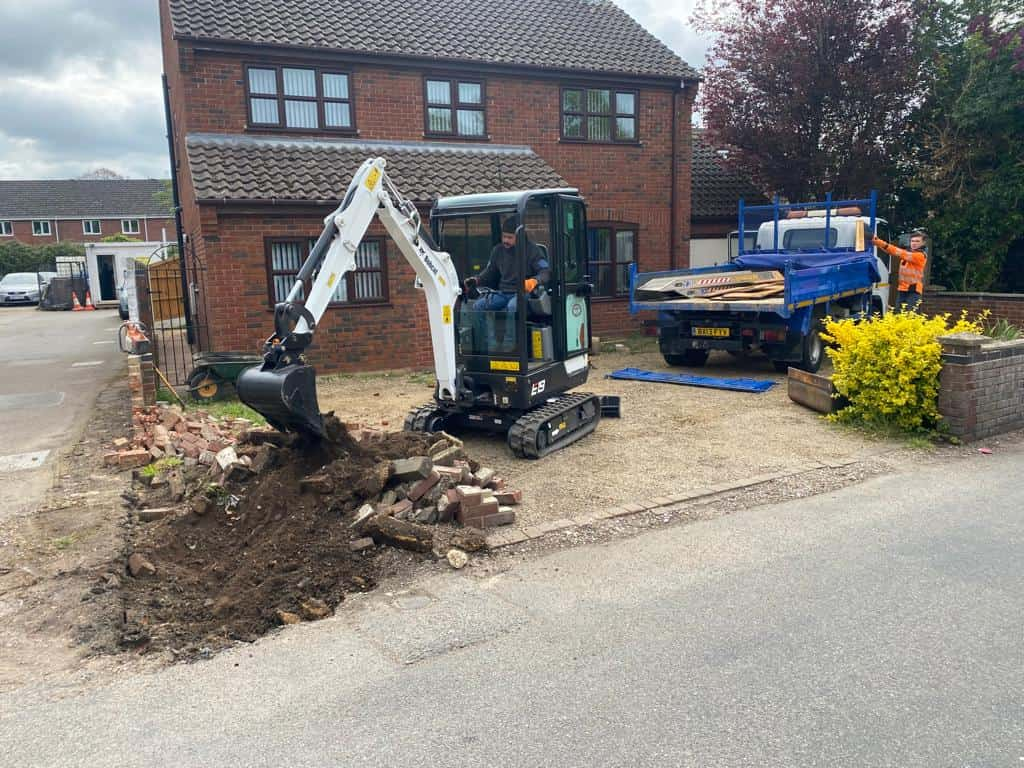Tarmac vs. Concrete: Which is Better for Your Project?
Introduction: Choosing the right material for your driveway or paving project is crucial for functionality and aesthetics. Tarmac and concrete are two popular options, each with its own set of advantages and considerations. Let’s explore the key differences between tarmac and concrete to help you make an informed decision for your project.
Durability and Longevity
Tarmac: Tarmac, known as asphalt, is renowned for its durability. It can withstand heavy loads and frequent use, making it ideal for driveways and roads that experience significant traffic. Properly installed tarmac can last up to 20 years or more with regular maintenance such as sealing and occasional repairs.
Concrete: Concrete driveways are highly durable and known for their longevity. When properly maintained, concrete can last 30 years or more. It’s particularly resistant to UV rays and weathering, making it a robust choice for long-term projects.
Installation and Time
Tarmac: Tarmac driveways are quicker to install than concrete driveways. The installation involves laying and compacting hot mix asphalt, which sets relatively quickly. This means less disruption to your property and faster access compared to concrete, which requires curing time.
Concrete: Concrete driveways have a longer installation process due to curing time. After pouring, concrete needs time to harden and cure properly before it can bear weight. This can extend the project timeline but results in a solid, long-lasting surface.
Maintenance and Repairs
Tarmac: Regular maintenance is essential for tarmac driveways to maximise their lifespan. This includes periodic resealing every few years to protect against water damage and UV exposure. Tarmac can develop cracks over time, but these are typically easier and less costly to repair than concrete.
Concrete driveways require less frequent maintenance but may develop cracks or surface spalling over time, especially if exposed to freezing temperatures or heavy vehicles. Repairs can be more complex and costly than tarmac, involving patching or resurfacing depending on the extent of damage.
Aesthetics and Customisation
Tarmac: Tarmac driveways offer a sleek, modern appearance in various aggregate colours to complement your property’s aesthetic. While primarily black, decorative options like coloured aggregates or stamped patterns can enhance visual appeal.
Concrete: Concrete driveways provide a clean, uniform look that complements a range of architectural styles. They can be customised with colour pigments, stamping, or exposed aggregate finishes to create unique designs and textures.
Environmental Considerations
Tarmac: Tarmac is considered more eco-friendly than concrete because it can be recycled. Used asphalt can be reclaimed and reused in new mixes, reducing waste and conserving natural resources.
Concrete: Concrete production involves cement, which has a high carbon footprint. However, advances in concrete technology include using recycled materials and improving production processes to reduce environmental impact.
Cost Considerations
Tarmac: Tarmac driveways generally have a lower initial cost compared to concrete. The savings in installation time and material expenses make tarmac a more budget-friendly option for large areas like driveways or parking lots.
Concrete: Concrete driveways may cost more upfront due to materials and longer installation times. However, their durability and longevity can provide value over time with fewer maintenance expenses.
Conclusion: Choosing between tarmac and concrete for your driveway or paving project depends on your needs, budget, and aesthetic preferences. Tarmac offers durability, quick installation, and cost-effectiveness, while concrete provides longevity, customisation options, and a solid, timeless appearance. Consult a professional driveway contractor to assess your site conditions and discuss which material best suits your project requirements.
Call us on: 01323 403 295
Click here to find out more about Eastbourne Driveways
Click here to complete our contact form and see how we can help you with your driveway needs.

